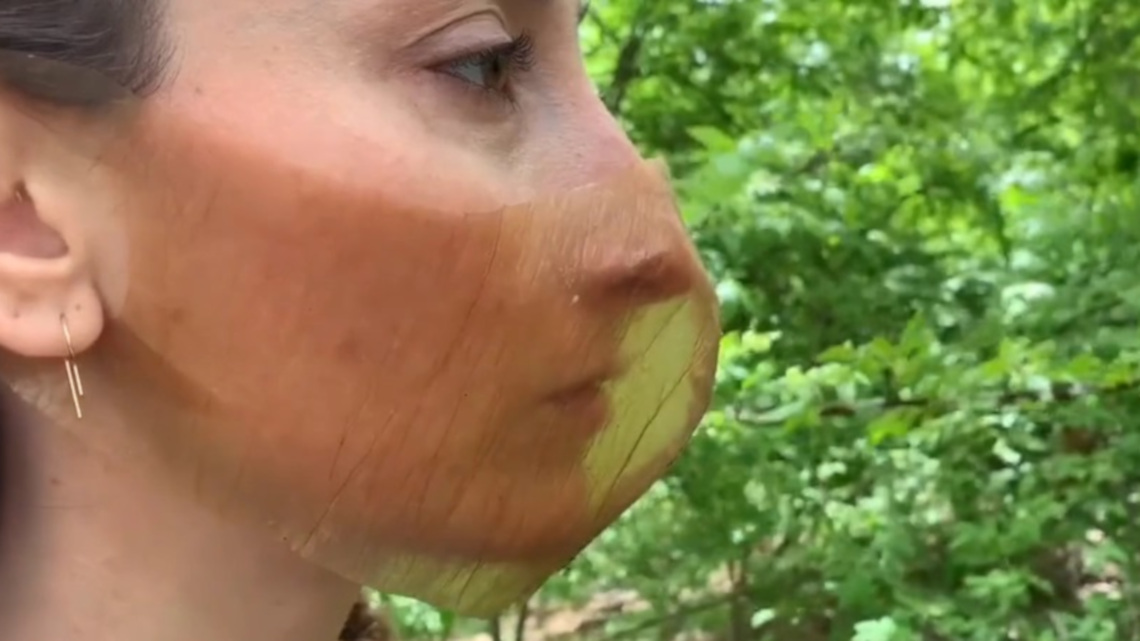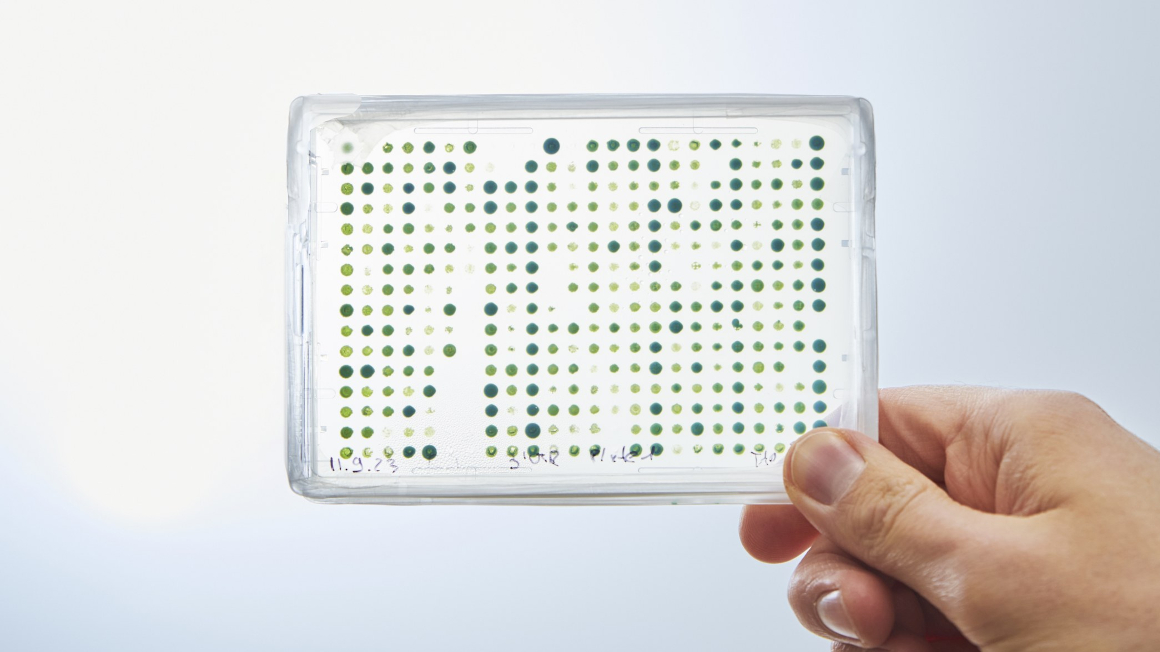Face mask made of bacterial cellulose
Two designers from the USA have used bacteria to produce a mouth and nose protection mask that filters air particles and is also biodegradable.

In the Corona pandemic, protective masks have become an everyday item. In the meantime, the initial bottleneck has been eliminated, and face masks are available almost everywhere - because one thing is certain: protective masks will continue to shape the public image for a long time to come. But the compulsory wearing of masks creates new problems: Carelessly disposed single-use masks cause more waste and endanger the environment because the material does not decompose easily. A sustainable alternative could be disposable masks from bacterial production.
Bacterial cellulose forms protective layer
The idea comes from two designers from New York. Elizabeth Bridges and Garrett Benisch from Sum Studio use the bacterium Xylinum acetobacter for the home production of the protective mask. What makes the microbes so special is that they produce cellulose - one of the most common biopolymers in the world as a component of plant cell walls. If the bacteria are multiplied in a nutrient solution consisting of water, tea and sugar, they deposit a thin layer of cellulose on the surface after several weeks. The leathery skin can be easily processed into a mouth and nose protection. According to the makers, the so-called "Xylinum Mask" should provide as good a protective effect as FFP2 respiratory masks, which are mainly used in hospitals. However, corresponding effectiveness tests are still missing.
Biodegradable and transparent
A decisive advantage of the novel mask: The material is biodegradable. After use, the mouth and nose protection mask can easily be disposed of in organic waste. In addition, the mask is transparent so that the facial expressions are visible. For deaf people who depend on lip-reading, the transparent mask would be an important life aid in the Corona period. But also educators in day-care centers would not only be better protected behind this mask, but also more recognizable for their students.
Prototype proves potential of biomaterials
However, it wasn't just the Corona crisis that tipped the scales in favor of the development of this unusual product: “The purpose of this project was not to develop and distribute masks, but to ask whether or not we’d be in such short supply of PPE if we had invested in biomaterials to the extent that we’ve invested in synthetics,” designer Garrett Benisch told Fast Company magazine. The mask made of bacterial cellulose is still only a prototype. It shows once again how versatile microorganisms can be used to create innovative products.


